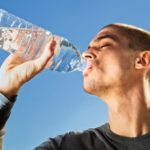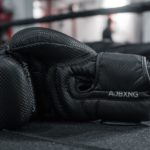Why do people sweat?
Sweat glands are present all over the body. They secrete sweat and are under the control of the autonomic nervous system. Sweat consists of water and electrolytes. Evaporation of sweat results in cooling of the body. Sweating may occur in relation to nervousness, excitement, and the consumption of nicotine or caffeine.
Why do people sweat?
Sweat has a typical odor that is salty and offensive, yet sweating or perspiration serves a useful function. Sweating can be physiological or pathological. Excessive sweating may also result in excessive loss of water and electrolytes resulting in dehydration and electrolyte imbalance. So let us understand the normal physiology of sweating.
Thermoregulation
Sweat glands play a great role in the regulation of body temperature. In a hot environment, the body tends to lose temperature by sweating. The sweat glands are supplied by sympathetic nerves and secrete large quantities of sweat when these nerves are stimulated. Evaporation of sweat takes place which results in surface cooling of the skin.
When water evaporates from the body surface, 0.58 Calories of heat is lost for each gram of water that evaporates. Insensible loss of water takes place from skin and lungs totaling about 500 to 1000 ml every day, depending on the weather. This results in loss of body heat at a rate of about 15 to 20 Calories per hour. Though the loss of moisture from the lungs is not useful for body temperature regulation, perspiration is controlled by the autonomic nervous system for temperature regulation.
Sweating and sports
Sweat glands are innervated by cholinergic nerve fibers which secrete acetylcholine. These glands can also be stimulated by epinephrine or norepinephrine circulating in the blood, even though they do not have adrenergic innervation. This is important during physical exercise and sports when these hormones are secreted by the adrenal glands. The body needs to lose excessive amounts of heat produced during exercise by active muscles. That is why sweating increases during exercise.
Sweat contains a large amount of sodium chloride. That is why the athletes are recommended to consume more salt while practicing in hot and humid climates. On the other hand, if an athlete becomes acclimatized to the heat by a gradual increase in activity over a period of 1 to 2 weeks, the sweat glands also become acclimatized. This results in a lesser loss of salt in the sweat as it gets reabsorbed. This acclimatization of the sweat glands occurs due to the secretion of aldosterone from the adrenal which helps in the reabsorption of sodium chloride from the sweat. Once the athlete is acclimatized, salt supplements are usually not required.
Military recruits
Scientific studies in military recruits have shown that heavy exercise in the desert may result in loss of potassium. Potassium loss results partly from the increased secretion of aldosterone during heat acclimatization, which retains the sodium but causes loss of potassium in the sweat and urine. Consumption of fruit juices that are rich in potassium has been found to be useful in such circumstances.
Abnormal sweating
An excessive sweating irrespective of body temperature is called hyperhidrosis. It usually involves hands, feet, axilla, and groin. This may occur secondary to certain diseases like thyrotoxicosis, diabetes mellitus, anxiety disorders, and menopause.
Night sweats are seen in tumors like lymphoma. Phaeochromocytoma is a tumor of adrenal glands which secretes excessive amounts of norepinephrine and epinephrine, which stimulate sweating.
Anhidrosis is a deficiency or lack of perspiration. Lack of sweating affects heat loss in a hot environment and may result in hyperthermia, heat exhaustion, and heatstroke. This increases the risk of mortality.
Sweating is a physiological process that is mainly required for normal temperature regulation. A change in climate requires acclimatization especially for sportspersons and during military exercises in a hot climate. Fluid and electrolyte supplements are recommended during such strenuous activity so as to prevent dehydration and electrolyte imbalance.




























